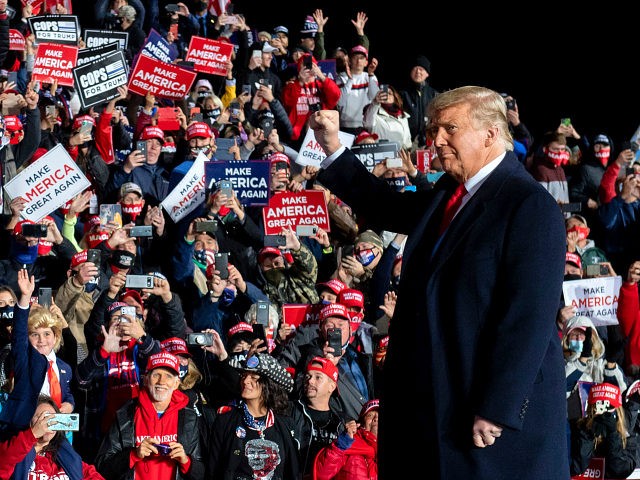The wisdom of President Donald Trump’s economic nationalism is on clear display in the most recent report from the Philadelphia Federal Reserve.
The Federal Reserve Bank of Philadelphia’s version of the Fed’s Beige Book—a collection of anecdotal information about the economics produced by the regional Federal Reserve banks—shows how important having a vibrant manufacturing sector is for economic resiliency. Manufacturing has held up much better and recovered much more quickly than the services sector.
The report explains that at the end of July, manufacturing firms responding to the Philly Fed’s survey reported that sales and new orders were about 14 percent below what had been anticipated pre-pandemic. At the end of August and September, firms reported demand was about 8 percent below pre-pandemic expectations.
Things are much worse in the services sector. At the end of July, nonmanufacturers reported that sales and new orders were about 21 percent below what had been anticipated pre-pandemic. At the end of August and September, firms reported demand was 16.7 percent and 16.2 percent below pre-pandemic expectations, respectively.
In other words, the pandemic has hit the nonmanufacturing sector twice as hard as the manufacturing sector.
Before Trump took office, manufacturing in Pennsylvania was stumbling, knocked hard by a combination of predatory trade from China and regulatory red tape from Washington, D.C. during the Obama-Biden administration. The recovery that had followed the Great Recession and financial crisis had run out of steam and the sector was once again shedding jobs. Companies had little incentive to invest in manufacturing in a world in which Chinese manufacturers would be allowed to undersell them thanks to cheap labor, low regulation, and government subsidies.
The election of Donald Trump changed that because Trump promised he would prevent Chinese predation. Tariffs imposed unilaterally showed that this was not just talk. That gave businesses the confidence to expand. Companies added workers again, expanding payrolls by 15,000 jobs between January 2017 and January 2019.
The pandemic put an end to that expansion and cost tens of thousands of manufacturing jobs. But if not for the expansion of the Trump era, Pennsylvania’s economy would have been much more service dependent and much more fragile.

COMMENTS
Please let us know if you're having issues with commenting.